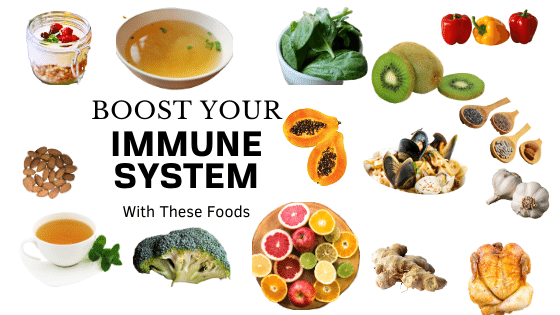
In the midst of a pandemic and with flu season on its way, many are asking – how can I support and strengthen my immune system? While the immune system generally does a great job of protecting the body from germs through its own processes and systems in place, we can work towards strengthening overall health, and in turn immune strength, by incorporating daily healthy lifestyle and eating habits.
Now, more than ever, is a great time to focus on health and well-being as we enter a new season and a “new normal.”
It is important to note, there is no food or supplement that can prevent or cure Covid-19. According to the Centers for Disease Control and Prevention, at this point in time, the best way to prevent illness is to avoid exposure to the virus. It is also important to note, the best way to protect yourself against the flu is by getting the annual flu vaccine.
Food Safety
Before we jump into nutrition, let’s take a moment to shine light to the importance of hand hygiene and food safety. So, first and foremost, wash your hands! Food safety is essential in reducing the risk of a food borne illness. A few important reminders:
- Wash your fruits and veggies before preparing/eating – this even includes lemons, limes, melons, and avocados!
- When preparing meats and veggies, use separate cutting boards and knives.
- The best way to thaw frozen meat/fish is in the refrigerator, and once defrosted – cook right away.
- Perishable food should be tossed if left out of the refrigerator for two hours.
- A cooking thermometer is a handy kitchen gadget to ensure meats are done to the recommended temperature. For example, chicken should be cooked to an internal temperature of 165 degrees Fahrenheit.
- Refrigerating leftovers? Throw out after 72 hours (3 days). When in doubt, throw it out!
Nourishing Nutrition
Strengthen your immune system with nutrient-dense foods – choose a variety of colorful fruits and vegetables, lean proteins, whole grains, and heart-healthy fats. Or as we like to say, “eat the rainbow!” Limit intake of added sugars (sodas, juices, pastries, etc.), fried foods, and processed meats (such as bacon, sausage, pork roll). Stay hydrated with water.
A special shout-out to Vitamin C, Vitamin D, Vitamin E, Vitamin B6, and Zinc for their role in immune function.
- Vitamin C, an antioxidant (helping to reduce the risk of damage to healthy cells) is found in many fruits and vegetables, including citrus fruits, strawberries, kiwi, red/green peppers, tomatoes, and potatoes.
- Vitamin E, also an antioxidant, is found in nuts and seeds, including sunflower seeds, almonds, and hazelnuts.
- Vitamin D, which aids in bone health, cellular and immune processes, is found in sunlight, fish (such as salmon and sardines), fortified milk, and cereals.
- Vitamin B6, also known as pyridoxine, is found in beans, nuts, legumes, fish, meats, and whole grains and plays a role in immune function through its role in protein metabolism and immune cell function.
- Zinc, a mineral, is involved in immune system activation and DNA synthesis, and is particularly abundant in oysters, meat, poultry, dairy products.
By including a rainbow of different foods and food groups in your diet, you can provide your body with a variety of immune strengthening vitamins and minerals.
What about supplements?
Generally, we recommend “food first” rather than dietary supplements for meeting your nutrient needs, unless a supplement is prescribed or recommended by your oncology doctor and care team.
Herbal supplements may interact with chemotherapy agents and other medications.
It is always best to check with your provider and medical care team regarding vitamin/mineral supplementation or herbal supplement usage.
Bottom Line
- Wash your hands!
- Eat a well-balanced, colorful diet and stay hydrated with water
- Limit intake of processed and red meats, fried foods, and added sugars
- Sleep 7-9 hours per night
- Engage in fun, safe physical activity
- Incorporate daily self-care practices
Check out How to Strengthen Your Immune System: Part 2 tomorrow!
Caroline Meehan is a Registered Dietitian Nutritionist at Penn Medicine’s Abramson Cancer Center with five years of experience in cancer care and medical nutrition therapy. Caroline enjoys writing, reading, and talking all things nutrition and health, whether it be debunking the latest diet fad or discussing the latest in nutrition science research. In her free time, Caroline is typically cooking or baking, and spending time outside, exploring Philadelphia and beyond.







